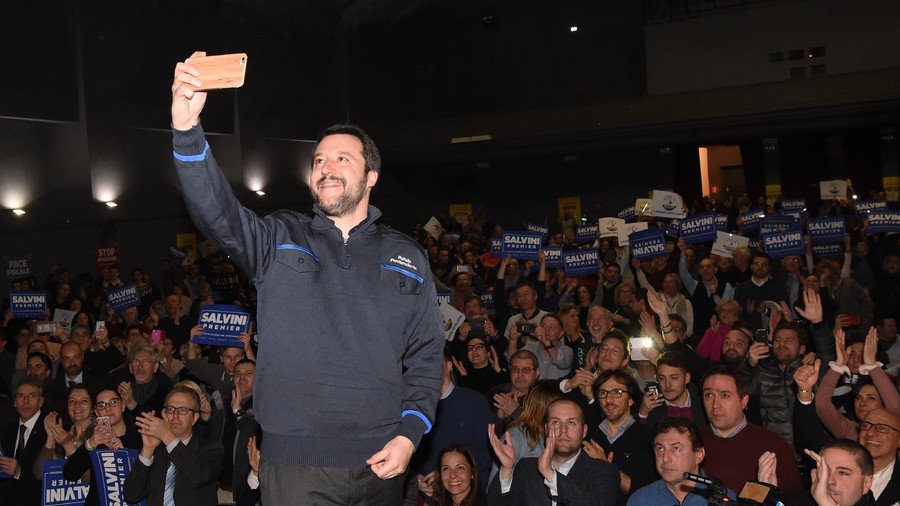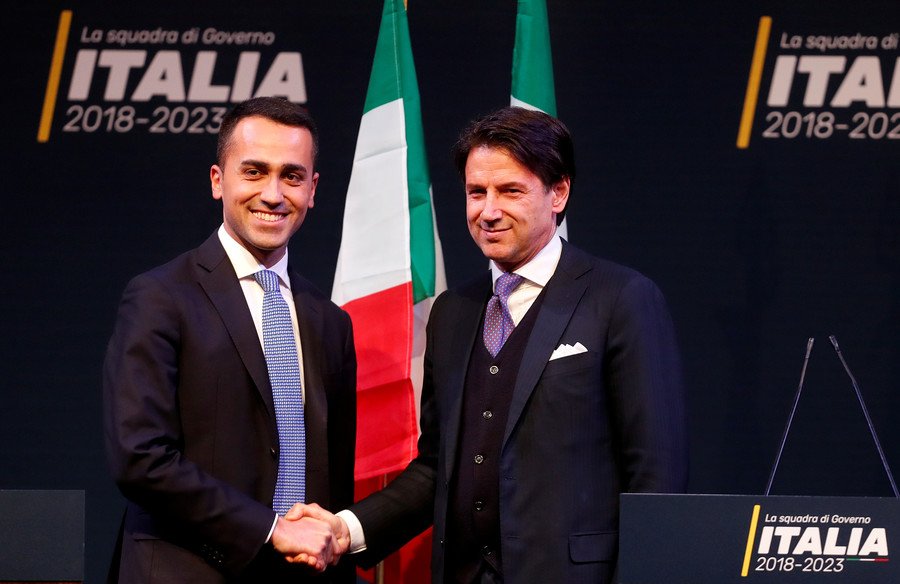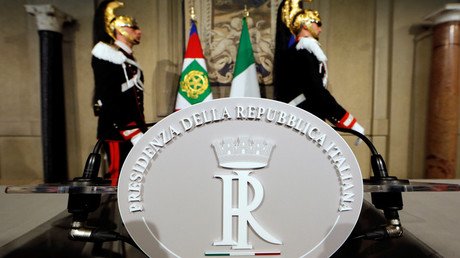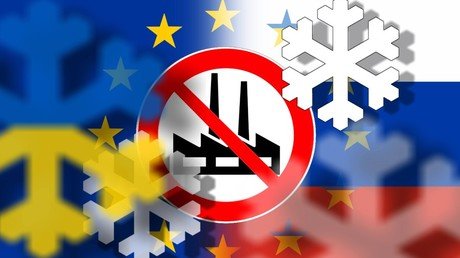Barbarians at the gate? End of democracy? Most hysterical establishment takes on new Italian govt

Mainstream political analysts have unleashed their doom-laden predictions about the impact of Italy's Five Star-Lega coalition, though their hostility is tempered by new-found concern for the "desperate," misguided electorate.
'The Weimar Republic'
"It may be too late. The spiral of populism is: unhappy voters; irresponsible promises, bad outcomes; even unhappier voters; still more irresponsible promises; and worse outcomes. The story is not over. It may have just begun," writes Martin Wolf in the Financial Times.
The FT has been one of the most apprehensive publications since Silvio Berlusconi stepped aside to allow the two upstart parties to form a coalition. An article last week went under the headline "Rome opens gates to modern barbarians" – presumably the majority of the Italian electorate, who voted for the two biggest parties in March – while another FT column on Monday said that the election paved the way "to liberal democracy's demise," and invoked the mistakes of the Weimar Republic before the ascent of Adolf Hitler.

For many centrist observers, the two parties are a devilish blend of retrograde baseness and cynical online savvy, a prototype of political activity that won't just be in charge of Italy until the next election (feasibly just months away), but will somehow poison the well of modern politics.
"These parties are incoherent, angry, unrealistic and often anti-science; they are also clever users of information technology. The Northern League and the Five Star Movement represent every powerful emotion, resentment, suspicion and anxiety that can be mobilized and weaponized by modern political parties. Above all, they reflect the disillusionment with politics — the disillusionment with everything — that inevitably sets in when populism fails," writes Anne Applebaum in the Washington Post, who connects their rise with supposedly Trump-like failures of Berlusconi's previous terms.
Applebaum is merely continuing the view expressed by New York Times pundit David Brooks, who suggested back around the time of the election that the decline of established centrist parties will lead to "political groups that are crazier than anything you could have imagined before."
"Once the norms of acceptable behavior are violated and once the institutions of government are weakened, it is very hard to re-establish them. Instead, you get this cycle of ever more extreme behavior, as politicians compete to be the most radical outsider," wrote Brooks, notably without asking once why the first-world Italian society would want to be governed en-masse by these supposed lunatics. It would also be curious to detangle the assemblage of loaded terms – what is "acceptable" or "extreme" or "weakened" in Brooks' understanding?
'Can't be trusted to run the country'
As witnessed previously following Brexit and Donald Trump's election, Italy's government seems to have turned political analysts, often of a nominally center-left persuasion, into avid market watchers, nay, defenders, with particular concern over the fate of the eurozone (Paul Mason in the New Statesman described the prospect of an EU-Rome stand-off as "bloodcurdling").
"Brussels is allowed to be concerned, because the populists set to take over the EU's third-largest economy could rattle the euro zone with irresponsible financial policies," an opinion piece in Deutsche Welle said. "To bail out an economy as large as Italy's in a way that is similar to what happened in Greece would be practically impossible."
"Another reason to beware is the parties' programmes," proclaims the Economist, which two sentences earlier said the parties "can't be trusted" to run Italy. "Their visceral Euroscepticism threatens the integrity of the euro zone. The Five-Star Movement has only recently stepped back from pledging to hold a referendum on leaving the single currency."
Indeed, why would anyone question, not to mention ask the public, whether the euro has been a success? While a new economic crisis in Europe would have seismic consequences for Italy first of all, this sort of analysis entirely misses the point of the coalition's manifesto (they were not elected to save the euro!) and turns them, a symptom of the continent's troubles, into its cause.
The Economist, and other publications, whose offices are located in other countries, have also enjoyed the luxury of lecturing Italy, which has borne the brunt of recent illegal immigration (over 600,000 are still in the country) into Europe on its election of anti-migrant parties.

"The League goes well beyond reasonable concern over refugees, advocating xenophobic and unworkable deportation policies," on one of the issues where perspective seems to make all the difference – migration was the biggest worry for Italians polled before the vote, and the inability to control it was likely the primary reason for the decimation of the ruling center-left.
Will there be a better time to deploy Game of Thrones parallel?
Of course, other than accusations of fascism, made somewhat difficult by the thoroughly un-Mussolini-like two months of patient coalition-building – it's hardly been the March on Rome – the other powerful and trump card remains Russia.
"This single-minded dedication to improving ties with Moscow as a panacea for all that ails the world is in line with the close links both parties are known to have cultivated with the Kremlin," Haaretz insinuates of the new government's desire to drop sanctions against Moscow.
READ MORE:itching Russia sanctions is part of draft coalition deal with Lega Nord – M5S to RT
And undoubtedly, what the Economist calls "excessive Russophilia" is liable to cause deleterious and sinister effects – there is only one step from liking Putin, to actually becoming Putin.
"Populists like Salvini understand that – as Petyr Baelish puts it in Game of Thrones – 'chaos is a ladder,'" writes Mason in his New Statesman piece. "Salvini is a fan of Putin and Le Pen, and knows that the route to power for authoritarian right-wing nationalists is through the drama of increasingly chaotic situations."
So to summarize: Italy is on course to destroy the euro, bankrupt itself, but bounce back by turning into a dictatorship, ushering in a new age of authoritarianism across Europe. Not even Italy's new leaders themselves could conjure up such power fantasies, as they doze off during the fifth hour of a Brussels finance ministers' meeting.
Igor Ogorodnev, RT
















